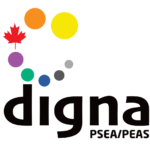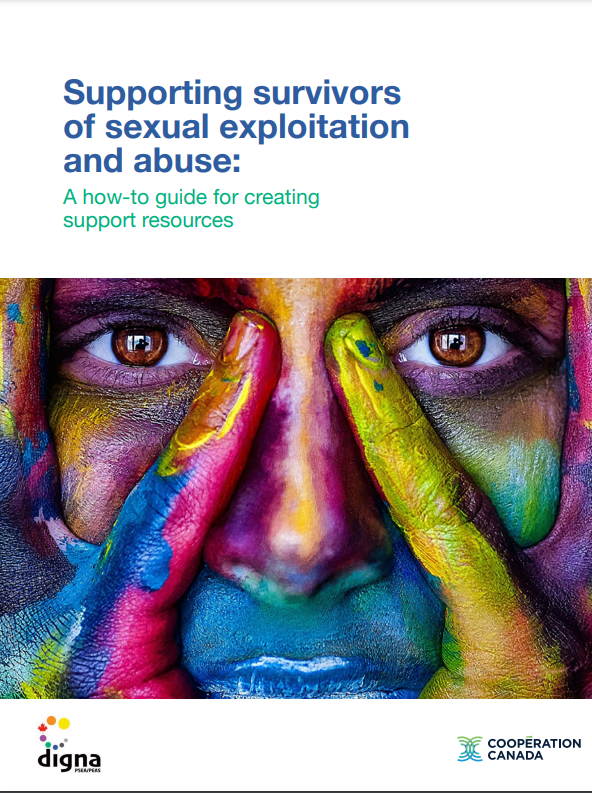Supporting Survivors of SEA: A How-to Guide for Creating Support Resources
Everyone in your organization should have a grasp on what to do when someone comes forward with an allegation or seeking support following an act of sexual violence. Survivors may go to anyone in the organization, so ensuring a consistent, safe and supportive reaction and reception is key. That is the reason why we created a guide to support organizations in preparing to support survivors of sexual exploitation and abuse, before an incident occurs.
Introduction
Digna, the Canadian Centre of Expertise on the Prevention of Sexual Exploitation and Abuse (PSEA), supports organizations to fulfill their duty of care towards their program participants, as it is each organization’s obligation to support survivors of sexual exploitation and abuse (SEA) in their own operations and contexts. Digna’s mandate is to support organizations to implement gender-responsive, survivor-centered, and trauma-informed policies, procedures, and resources in the case that someone comes to an organization for support following an incident of SEA. Digna encourages organizations to think through all policies, procedures, and resources
with an intersectional and intercultural lens, and consider the different needs and realities of survivors.
The goal of this guide is to support organizations in preparing to support survivors of SEA, before an incident occurs. Pre-positioning the proper protocols, standard operating procedures, resources, and staff/volunteers with the skills to support survivors in each country or context of operation is key to ensuring the protection of the survivor.
Digna urges organizations to consider prioritizing the up-front costs of proper survivor support, to avoid potentially creating more emotional work and triggering situations for survivors who do choose to come forward.
The risk of SEA to program participants is never zero. Digna aims to help organizations reduce that risk, but also address the risk of doing more harm to survivors.
This guide aims to close the gap on implementing actual survivor-centered and trauma-informed policies and procedures. By using this guide, your organization will have a solid foundation for in-country support for survivors.
Disclaimer
This is first and foremost a guide for SEA survivors, who are program participants and affected communities with whom international cooperation organizations work, and for organizations that support them. However, many guiding principles are transferable and can also be used to support staff and volunteers who experience sexual violence in the different contexts in which organizations work.
Useful Resources
Review of the Guide (Video)
Documents
External Documents

Crossroads International has been doing great work on this topic. By adding a guide dedicated to responding to sexual violence for each country, Crossroads reinforces its commitment to a survivor-centered approach by giving survivors control of the decision-making process following an incident of sexual violence. You can find all the resources they shared with Digna below.
Guide Country specific sexual violence information
Data Collection Template (Word format)
Country Guides
The guides you will find below were created to provide information on services, and resources available at the country level to support sexual violence survivors and to help focal points complete the country-specific information template to respond to sexual violence. The guides for Ghana, Uganda and Zambia are in English. The rest are in French.

